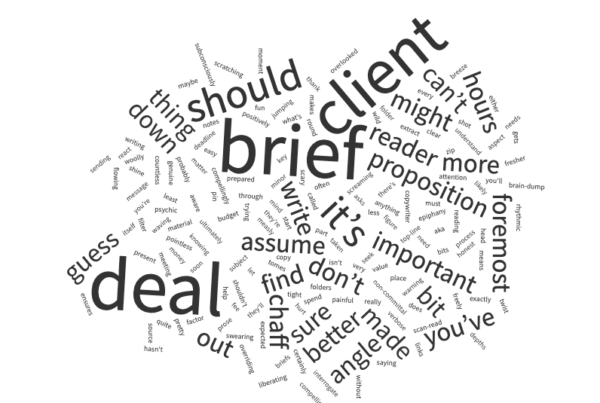I’ve dedicated 16 years of my adult life to becoming a better writer – of course I give a monkey’s about what AI might mean to my livelihood. A very large monkey’s, in fact.
With one eye closed, my mouse hovering over the ‘close window’ button, and knowing I’ve enough fuel in the van to reach the coast, I’ve explored a few articles on the matter. So far, I’m still sitting here. So far, I’m not overly frightened. But equally, I’m not daft or dismissive enough to ignore AI’s potential to transform how, collectively, we go about our business of persuasive written communication.
It seems that AI is already adept at crafting copy that isn’t immediately discernible as different – generally speaking – from that created by a person. All the words are in the right order. The proposition is apparent, and even structured to be compelling. There’s a hint of conversational rhythm. There are even contextual asides, and occasional attempts at humour. At a glance, the good stuff can pass as written by an entity with blood and organs, a brain, and an understanding of its subject and audience.
Uh-huh.
Yep.
Complex learning algorithms can replicate cognitive functions.
In many communication contexts, that’s all you need. The right words, in the right order, as a psychopath might say them. Or a perhaps a sociopath, according to the glib distinction that ‘psychopaths are born; sociopaths are made’.
Anyway. For me, that’s the main reason that, at this stage, I don’t feel threatened by AI. As it stands, it won’t do anything you don’t tell it to (or give it the tools to do). It can write a good promotional piece on savings and investments. It can churn out social posts on fitness technology. It can encourage you to buy not just an electric car, but also buy into its branding and values, and associated aspirations. It can get you thinking, exploring, enhancing your life. On many basic levels, it’s impossible to tell the difference between a chunk of copy written by AI, and one written by someone like me. On many basic levels, it doesn’t even matter – and I’m not daft enough to pretend otherwise. But I do think if I was expecting something from a writer I know well and relate to somehow, or written to a particularly distinct brand tone of voice, I’d pick up on something. Perhaps I’m more scared than I’m prepared to admit, and it’s just that ‘I’d like to think…’
By definition, AI has many shortcomings. It’s artificial, for starters. It’s machine learning devoid of any context beyond its input. It literally has no experience, unique tenuous association, wit, lateral thinking or humour – just some of many things I consider crucial to any writing that truly connects with and inspires people.
As much as I’d love to, I’m not going to get into the ‘I Can’t Believe it’s not Butter’ analogies, but I think there’s a fairly low cut-off for AI’s current usefulness – or its potential to put decent writers out of work. It’s great for structuring and drafting content. It can save a lot of time deciphering a client brief, or at least inadvertently identify the holes in it. It can get the basics down, which is often a copywriter’s biggest hurdle. It can write content for content’s sake, but I don’t know one copywriter that enjoys doing that… or anyone that experiences epiphanies when reading it.
It has its uses. And of course it will get better and better, and I will have to clean carpets or do expressive dance workshops instead of do what I love – write.
Perhaps that’s the crux of it. AI will never love writing.
It will never love anything, because it can’t. It will just do what we tell it to.
It can ‘pretend’, just like a copywriter often does, but we’ve mostly had the experience to back it up.
What do you think?




